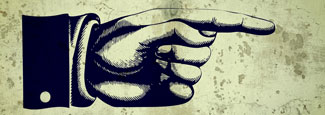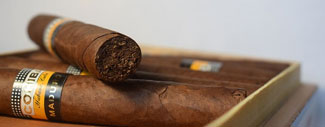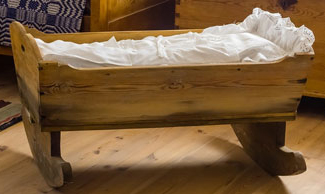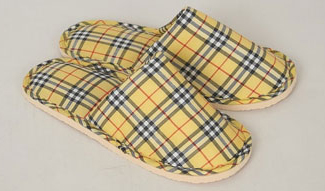The Time Machine — EN
I
Introduction
The Time Traveller (for so it will be convenient to speak of him) was expounding a recondite matter to us. His grey eyes shone and twinkled, and his usually pale face was flushed and animated. The fire burned brightly, and the soft radiance of the incandescent lights in the lilies of silver caught the bubbles that flashed and passed in our glasses. Our chairs, being his patents, embraced and caressed us rather than submitted to be sat upon, and there was that luxurious after-dinner atmosphere when thought roams gracefully free of the trammels of precision. And he put it to us in this way – marking the points with a lean forefinger – as we sat and lazily admired his earnestness over this new paradox (as we thought it:) and his fecundity.
“You must follow me carefully. I shall have to controvert one or two ideas that are almost universally accepted. The geometry, for instance, they taught you at school is founded on a misconception.”
“Is not that rather a large thing to expect us to begin upon?” said Filby, an argumentative person with red hair.
“That is all right,” said the Psychologist.
“Nor, having only length, breadth, and thickness, can a cube have a real existence.”
“There I object,” said Filby. “Of course a solid body may exist. All real things – ”
“So most people think. But wait a moment. Can an instantaneous cube exist?”
“Don’t follow you,” said Filby.
“Can a cube that does not last for any time at all, have a real existence?”
Filby became pensive. “Clearly,” the Time Traveller proceeded, “any real body must have extension in four directions: it must have Length, Breadth, Thickness, and – Duration. But through a natural infirmity of the flesh, which I will explain to you in a moment, we incline to overlook this fact. There are really four dimensions, three which we call the three planes of Space, and a fourth, Time. There is, however, a tendency to draw an unreal distinction between the former three dimensions and the latter, because it happens that our consciousness moves intermittently in one direction along the latter from the beginning to the end of our lives.”
“That,” said a very young man, making spasmodic efforts to relight his cigar over the lamp; “that… very clear indeed.”
“Now, it is very remarkable that this is so extensively overlooked,” continued the Time Traveller, with a slight accession of cheerfulness. “Really this is what is meant by the Fourth Dimension, though some people who talk about the Fourth Dimension do not know they mean it. It is only another way of looking at Time. There is no difference between time and any of the three dimensions of space except that our consciousness moves along it. But some foolish people have got hold of the wrong side of that idea. You have all heard what they have to say about this Fourth Dimension?”
“I have not,” said the Provincial Mayor.
“It is simply this. That Space, as our mathematicians have it, is spoken of as having three dimensions, which one may call Length, Breadth, and Thickness, and is always definable by reference to three planes, each at right angles to the others.
But some philosophical people have been asking why three dimensions particularly – why not another direction at right angles to the other three? – and have even tried to construct a Four-Dimension geometry. Professor Simon Newcomb was expounding this to the New York Mathematical Society only a month or so ago. You know how on a flat surface, which has only two dimensions, we can represent a figure of a three-dimensional solid, and similarly they think that by models of three dimensions they could represent one of four – if they could master the perspective of the thing. See?”
“I think so,” murmured the Provincial Mayor; and, knitting his brows, he lapsed into an introspective state, his lips moving as one who repeats mystic words. “Yes, I think I see it now,” he said after some time, brightening in a quite transitory manner.
“Well, I do not mind telling you I have been at work upon this geometry of Four Dimensions for some time. Some of my results are curious. For instance, here is a portrait of a man at eight years old, another at fifteen, another at seventeen, another at twenty-three, and so on. All these are evidently sections, as it were, Three-Dimensional representations of his Four-Dimensioned being, which is a fixed and unalterable thing.
“Scientific people,” proceeded the Time Traveller, after the pause required for the proper assimilation of this, “know very well that Time is only a kind of Space. Here is a popular scientific diagram, a weather record. This line I trace with my finger shows the movement of the barometer. Yesterday it was so high, yesterday night it fell, then this morning it rose again, and so gently upward to here. Surely the mercury did not trace this line in any of the dimensions of Space generally recognized? But certainly it traced such a line, and that line, therefore, we must conclude was along the Time-Dimension.”
“But,” said the Medical Man, staring hard at a coal in the fire, “if Time is really only a fourth dimension of Space, why is it, and why has it always been, regarded as something different? And why cannot we move in Time as we move about in the other dimensions of Space?”
The Time Traveller smiled. “Are you sure we can move freely in Space? Right and left we can go, backward and forward freely enough, and men always have done so. I admit we move freely in two dimensions. But how about up and down? Gravitation limits us there.”
“Not exactly,” said the Medical Man. “There are balloons.”
“But before the balloons, save for spasmodic jumping and the inequalities of the surface, man had no freedom of vertical movement.” “Still they could move a little up and down,” said the Medical Man.
“Easier, far easier down than up.”
“And you cannot move at all in Time, you cannot get away from the present moment.”
“My dear sir, that is just where you are wrong. That is just where the whole world has gone wrong. We are always getting away from the present movement. Our mental existences, which are immaterial and have no dimensions, are passing along the Time-Dimension with a uniform velocity from the cradle to the grave. Just as we should travel down if we began our existence fifty miles above the earth’s surface.”
“But the great difficulty is this,” interrupted the Psychologist. “You can move about in all directions of Space, but you cannot move about in Time.”
“That is the germ of my great discovery. But you are wrong to say that we cannot move about in Time. For instance, if I am recalling an incident very vividly I go back to the instant of its occurrence: I become absent-minded, as you say. I jump back for a moment. Of course we have no means of staying back for any length of Time, any more than a savage or an animal has of staying six feet above the ground. But a civilized man is better off than the savage in this respect. He can go up against gravitation in a balloon, and why should he not hope that ultimately he may be able to stop or accelerate his drift along the Time-Dimension, or even turn about and travel the other way?”
“Oh, this,” began Filby, “is all – ”
“Why not?” said the Time Traveller.
“It’s against reason,” said Filby.
“What reason?” said the Time Traveller.
“You can show black is white by argument,” said Filby, “but you will never convince me.”
“Possibly not,” said the Time Traveller. “But now you begin to see the object of my investigations into the geometry of Four Dimensions. Long ago I had a vague inkling of a machine – ”
“To travel through Time!” exclaimed the Very Young Man.
“That shall travel indifferently in any direction of Space and Time, as the driver determines.”
Filby contented himself with laughter.
“But I have experimental verification,” said the Time Traveller.
“It would be remarkably convenient for the historian,” the Psychologist suggested. “One might travel back and verify the accepted account of the Battle of Hastings, for instance!”
“Don’t you think you would attract attention?” said the Medical Man. “Our ancestors had no great tolerance for anachronisms.”
“One might get one’s Greek from the very lips of Homer and Plato,” the Very Young Man thought.
“In which case they would certainly plough you for the Little-go. The German scholars have improved Greek so much.”
“Then there is the future,” said the Very Young Man. “Just think! One might invest all one’s money, leave it to accumulate at interest, and hurry on ahead!”
“To discover a society,” said I, “erected on a strictly communistic basis.”
“Of all the wild extravagant theories!” began the Psychologist.
“Yes, so it seemed to me, and so I never talked of it until – ”
“Experimental verification!” cried I. “You are going to verify that?”
“The experiment!” cried Filby, who was getting brain-weary.
“Let’s see your experiment anyhow,” said the Psychologist, “though it’s all humbug, you know.”
The Time Traveller smiled round at us. Then, still smiling faintly, and with his hands deep in his trousers pockets, he walked slowly out of the room, and we heard his slippers shuffling down the long passage to his laboratory.
The Psychologist looked at us. “I wonder what he’s got?”
“Some sleight-of-hand trick or other,” said the Medical Man, and Filby tried to tell us about a conjurer he had seen at Burslem; but before he had finished his preface the Time Traveller came back, and Filby’s anecdote collapsed.
expound ɪksˈpaʊnd v To explain in detail: illustrate, interpret, construe, explicate
recondite rɪˈkɒndaɪt adj Not easily understood: profound, esoteric, abstruse
twinkle ˈtwɪŋkl v To shine with slight intermittent gleams: flash, glisten, glint, glitter, sparkle
radiance ˈreɪdiəns n The quality of being bright and sending out rays of light.
incandescent ˌɪnkænˈdɛsnt adj Shining brilliantly: bright, luminous, radiant, lustrous, beaming
 lily ˈlɪli n Plant with variously coloured, often trumpet-shaped flowers.
lily ˈlɪli n Plant with variously coloured, often trumpet-shaped flowers.
 bubble ˈbʌbl n Thin, usually spherical or hemispherical film of liquid filled with air.
bubble ˈbʌbl n Thin, usually spherical or hemispherical film of liquid filled with air.
caress kəˈrɛs v Touch or stroke lightly in a loving or endearing manner.
luxurious lʌgˈzjʊərɪəs adj Very comfortable and expensive
roam rəʊm v To move about at random: wander, ramble, rove
trammel ˈtræməl n Something that restricts activity, expression, or progress: restraint
 forefinger ˈfɔːˌfɪŋgə n The finger next to the thumb.
forefinger ˈfɔːˌfɪŋgə n The finger next to the thumb.
earnestness ˈɜːnɪstnəs n Determination and seriousness, especially when this is without humour.
fecundity fɪˈkʌndɪtɪ n The quality of being fertile: productivity, fertility, fruitfulness
controvert ˈkɒntrəvɜːt v To voice opposition to: deny, contradict, negate
misconception ˌmɪskənˈsɛpʃən n Failure to understand correctly: misunderstanding, misinterpretation
argumentative ˌɑːgjʊˈmɛntətɪv adj Often arguing or wanting to argue.
object əbʤˈekt v To disagree with something or oppose something.
instantaneous ˌɪnstənˈteɪniəs adj Happening very quickly, in an instant.
don’t follow you ⇒ I don’t understand what you mean (the subject is dropped in order to make the style colloquial).
at all ⇒ In any way; for any reason; to any extent; whatever.
pensive ˈpɛnsɪv adj Deeply or seriously thoughtful.
infirmity ɪnˈfɜːmɪti n The state of being weak or ill especially because of old age.
incline ɪnˈklaɪn v To have a mental tendency, preference, etc.: be disposed
intermittently ˌɪntə(ː)ˈmɪtəntli adj Stopping and starting at intervals: occasionaly, periodically, sporadically, fitfully, occasionally, periodically, sometimes
spasmodic spæzˈmɒdɪk adj Happening suddenly for short periods of time and not in a regular way.
relight ˌriːˈlaɪt v To light or kindle anew.
 cigar sɪˈgɑːr n A more or less cylindrical roll of tobacco cured for smoking, of any of various lengths, thicknesses, degrees of straightness, etc., usually wrapped in a tobacco leaf.
cigar sɪˈgɑːr n A more or less cylindrical roll of tobacco cured for smoking, of any of various lengths, thicknesses, degrees of straightness, etc., usually wrapped in a tobacco leaf.
accession ækˈsɛʃ(ə)n n An increase by means of something added: addition, augmentation
to have hold of the wrong side of the idea ⇒ To have a wrong notion about something
Provincial Mayor ⇒ The head of a province government.
definable dɪˈfaɪnəbl adj You can explain and describe its meaning and exact limits.
by reference to ⇒ In relation with.
expound ɪksˈpaʊnd v Clarify the meaning of something in a learned way, usually in writing.
or so ⇒ (of quantities) Imprecise but fairly close to.
murmur ˈmɜːmə v Speak indistinctly in a low tone.
to knit one’s brows ⇒ Move your eyebrows together, to show that you are thinking hard, feeling angry, etc.
lapse læps v To pass gradually: slip
introspective ˌɪntrəʊˈspɛktɪv adj Contemplating of one’s own thoughts and sensations; self-examining.
transitory ˈtrænsɪtəri adj Lasting only for a short time: temporary, momentary, ephemeral, short-lived, fleeting
I do not mind telling you ⇒ I am not opposed to tell you (Used to emphasize the statement someone is making and to suggest that he is making the statement in an unwilling way).
to be at work on/upon something ⇒ To work at/on something; to deal with something.
unalterable ʌnˈɔːltərəbl adj Remaining the same that cannot be changed.
assimilation əˌsɪmɪˈleɪʃ(ə)n n The act or process of absorbing information, experiences, etc.
upward ˈʌpwəd adv Spatially or metaphorically from a lower to a higher position.
 mercury ˈmɜːkjʊri n Silvery-white poisonous metallic element, liquid at room temperature and used in thermometers, barometers, etc.
mercury ˈmɜːkjʊri n Silvery-white poisonous metallic element, liquid at room temperature and used in thermometers, barometers, etc.
to move about ⇒ To change one’s position.
save for ⇒ With the exception of, except.
inequality ˌɪni(ː)ˈkwɒlɪti n Lack of smoothness: roughness, jaggedness, unevenness
to get away ⇒ To depart, to go away.
immaterial ˌɪməˈtɪərɪəl adj Without material form or substance; not consisting of matter.
velocity vɪˈlɒsɪti n Rapidity of motion or operation: swiftness; speed
 cradle ˈkreɪdl n A small bed for a baby, especially one that rocks from side to side.
cradle ˈkreɪdl n A small bed for a baby, especially one that rocks from side to side.
fifty miles ⇒ 1 mile is 1.609 kilometers. so 50 miles are about 80 km.
germ ʤɜːm n (Biology) A source of further growth and development: embryo, nucleus, spark, kernel
vividly ˈvɪvɪdli adv In a way that is very clear, powerful, and detailed in your mind.
means miːnz n (pl) method; way, mode.
to be better off ⇒ wealthy, rich, in easy circumstances.
to have a vague inkling of ⇒ To have a vague idea about; inkling ˈɪŋklɪŋ n A slight, uncertain idea or knowledge about something.
exclaim ɪksˈkleɪm v To cry out or speak suddenly and vehemently, as in surprise, strong emotion, or protest.
indifferently ɪnˈdɪfrəntli adv In a way that shows you are not thinking about or interested in someone or something
remarkably rɪˈmɑːkəbli adv Used for emphasizing how surprising or unusual something is: extraordinary
Battle of Hastings ⇒ A battle which took place on October 14th, 1066 and in which William the Conqueror won a decisive victory over the Anglo-Saxons.
to have tolerance for ⇒ To endure, to bear.
anachronism əˈnækrənɪzm n Something located at a time when it could not have existed or occurred.
very ˈvɛri adj Being the exact same one; not any other (used to emphasize the exactness of a description).
Homer ˈhəʊmə Author of the Iliad and the Odyssey, two epic poems that are the central works of Ancient Greek literature.
Plato ˈpleɪtəʊ Philosopher during the Classical period in Ancient Greece, founder of the Platonist school of thought, and the Academy, the first institution of higher learning in the Western world.
plough ⇒ (here) to fail someone in an exam.
Little-go ⇒ first bachelor exam at the Cambridge University.
erect ɪˈrɛkt v Construct, build.
communistic ˌkɒmjʊˈnɪstɪk adj Relating to or marked by communism.
brain-weary ⇒ exhausted, bored, tired.
humbug ˈhʌmbʌg n Something intended to deceive: hoax, fraud; nonsense
 slipper ˈslɪpə v Low footwear that can be slipped on and off easily; usually worn indoors.
slipper ˈslɪpə v Low footwear that can be slipped on and off easily; usually worn indoors.
shuffle ˈʃʌfl v Walk without lifting one’s feet by dragging them on the floor.
sleight-of-hand trick ⇒ A swifthanded and skilful trick.
conjurer ˈkʌnʤərə n Magician; a sorcerer.
Burslem ˈbɜːrzləm A town that is part of the city of Stoke-on-Trent in Staffordshire, England.
preface ˈprɛfɪs n An introductory part, as of a book, speech etc.